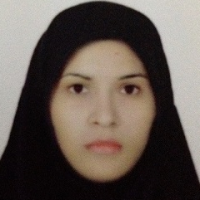The Role of Metonymy-Producing Relationships in Drawing Self and Other Borders: A Cognitive Critical Discourse Analysis of World Powers and Terrorism in the First Statements by Khatami, Ahmadinejad and Rouhani in the General Assembly of the United Nations
This study aims to use cognitive critical discourse analysis in analyzing the first statements of the recent presidents of the Islamic Republic of Iran in the General Assembly of the United Nations. It seeks to capture how each discourse makes antagonisms through applying metonymy-producing relationships. The main question is how identity and its otherness are articulated in the context of the Iranian presidents’ statements in the UN’s General Assembly and which factors and signs in the metonymy-producing relationships serve this representation. The theoretical framework of this study is composed of Hall’s (2011) approach to discourse analysis based on cognitive linguistics, Laclau and Mouffe’s (2001) Discourse Theory, and Radden and Kövecses (1999) conceptual metonymy. The findings show that each president through using metonymy-producing relationships, profiles some vehicles that both negatively foreground some aspects of the other’s identities, and avoid explicit other-making and overt antagonism with them. On the other hand, all the discourses apply similar metonymys; this behavior denotes their common root as subdiscourses of the Islamic revolution’s metadiscourse.
-
Analyzing the Development of a Longitudinal Error-Tagged English Learner Corpus: Exploring Accuracy Development in Iranian EFL Learners' Writing
Samaneh Yadollahi, *, Mohammad Rahimi
Journal of Modern Research in English Language Studies, Winter 2025 -
Exploring Metaphorical Conceptualizations Involving the Source Domain Up/Down in Iranian Cinema: A Case Study of the Films 'Dancing in the Dust' and 'Fireworks Wednesday'
Elham Kaviyani Fardzadeh, *, Alireza Khormaee
Journal of Iranian Dialects & Linguistics, -
Critical-Cognitive Analysis of Identity Circles in the Resolutions of 22 Bahman Ceremonies from 2011 to 2021
Amir Rezaeipanah, *
Language and Linguistics, -
Investigating the manner of drawing the identity-based foundations in Joe Biden’s presidential inaugural speech through conceptual metaphors
, jalal rahimian
Journal of Linguistics & Khorasan Dialects,




